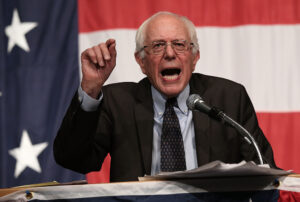In 1993, the then British Prime Minister, John Major, gave a speech to the Conservative Group for Europe: “Fifty years on from now,” he predicted, “Britain will still be the country of long shadows on county [cricket] grounds, warm beer, invincible green suburbs, dog lovers, and — as George Orwell said — old maids bicycling to Holy Communion through the morning mist.”
To his audience of liberal Tories, Major clumsily evoked a microcosmic life of the nation that, piece-by-piece, constituted the Conservative Party. His party would survive, Major argued, because it was rooted, not in ideology or activism, but in the daily practices and associations of millions of people: attending church, organising clubs and conducting ordinary business.
Even at the time, Major’s vision of an intact civil society bolstering a centuries-old party was out of date. Indeed, a few years later, in the “invincible green suburbs” of Major’s speech, millions of Conservatives abandoned the party in 1997 for Blair’s Labour.
Yet, there was something concrete in his political elegy. The mediating associations of the Conservatives, although weak, survived 1997 and helped rebuild the party under David Cameron’s vague “Big Society” project. In contrast, the clubs and associations that kept Labour voters loyal — Miners’ Institutes, Workingman’s Associations, Labour Clubs, trade unions and the Methodist chapel — had already declined by the early Nineties. Without these structures, Labour’s core vote in the Red Wall happily turned blue in 2019.
However, from the vantage point of 2024, the Conservative Party’s 14-year revival now looks like a blip. In 1953, the Tories had more than 2.8 million members: almost twice that of Labour. Today, it claims only 172,437.
Historically, the Tory Party relied on “Conservative” or “Constitutional” clubs as auxiliaries, connecting MPs to their communities through cheap booze, snooker, music hall acts and darts. These clubs were once the “non-political” bedrock of the Conservative Party: expressing a paradoxically non-ideological vision of ideology and governance.
Indeed, many members of Conservative Clubs I spoke to refused to concede that their membership was in any way political. “We don’t talk about politics here,” was a common response to my inquiries. Few saw the irony of saying so while sitting beneath portraits of Winston Churchill, Boris Johnson or Margaret Thatcher.
“In the Eighties, a friend of mine was visited by a Conservative Party worker in the Surrey stockbroker belt and was invited to a BBQ at the local Conservative Club,” Rupert Morris, author of The Tories: From Village Hall to Westminster, tells me. “When he said he would only come if they BBQed Mrs Thatcher, the grand Tory lady replied: ‘Oh, but we’re not political around here, anyone can come.’ There was an unquestioning sense that one would naturally be a Conservative in a place like Surrey.”
Such placid content has since disappeared. Over the last decade, these clubs have closed at a rapid rate: bludgeoned by rising energy costs, Covid-19, declining membership and the expense of entertainment. Some clubs are now trying to change their names, strategising that their political affiliations are putting off punters. When I phoned Charles Littlewood, the Deputy Chief Executive of the Associate of Conservative Clubs (ACC), to discuss closure rates, I was greeted with flat-out refusal and accusations of media bias.
And so, I travelled to the suburban south coast of West Sussex, to find out for myself. Here, the private Lancing College rises from the South Downs, while fishing cottages, council estates and vast rows of suburban semis crowd the shoreline. In many ways, it is an all too neat encapsulation of Major’s “invincible green suburbs”. It should be the perfect place for Conservative Clubs, if not the party, to thrive.
However, this coastline, once assumed to be representative of the average Tory safe seat, is rapidly changing. While Worthing and Shoreham still possess a few Conservative Clubs, both parliamentary seats are expected to fall to Labour this week. Many in the area understand this as a consequence of high house prices and the migration of young Labour-voting professionals and families away from the extortionate rents of London and Brighton.
Goring Conservative Club, the first venue I visited, is housed in a grand neoclassical building in the middle of an estate. A week before the general election, and there are no political posters or banners of any kind: only flags for the football. In the atrium of the building, I meet Simon Flack, the chairman of the club, and Catherine Lane, a committee member. Inside, there are no openly party-political features. Instead, English and Scottish flags for the Euros are draped over the bar.
“I don’t know necessarily, at the present moment, whether I want to invite him,” says Flack, when I ask him about the club’s connection to Sir Peter Bottomley, the local Conservative MP. “He’s never approached us. A year ago, I had a man turn up who was looking after Peter. He thought they would be meeting here, but they were actually meeting in the library down the road,” Flack adds. “Why he didn’t ask us to use the function room is beyond me.” (One of Bottomley’s staffers later tells me: “We’ve gone our separate ways, over the last nine years we’ve not had an email asking him to attend the club. I can’t believe they would invite Sir Peter.”)
Flack described how the club used to connect its members to the Tory high and mighty: “If you look at our honours board, it’s Colonel So-And-So, Sir Whomever, and several famous MPs, but this is going back to the 1940s and 1950s.” Lane adds that, today, politics is rarely discussed. “Politics is never spoken about here, it’s never seriously spoken about — people come here to socialise, the [Conservative] name is part of the deeds, we have to keep it.”
Indeed, the breakdown between the Goring Conservative Club and the Tory Party reached a tipping-point last year. “An ex-president of ours was as Conservative as they come, and he actually did a video for the Labour Party a couple of months ago,” Flack explains.
Down the road in Shoreham, the local Conservative Club huddles beneath a huge glass development stretching along the river. Inside, the room is packed out for Saturday night’s entertainment. The average age is 70.
Shoreham’s atmosphere immediately feels more politically charged. The local Tory candidate’s leaflets sit in a large pile at the door. Portraits of the late Queen and Winston Churchill watch over the bar. From the far side of the room, a series of photographs of Conservative prime ministers from Rishi Sunak to Thatcher line the wall. “We skipped Liz Truss,” a bartender jokes.
One table tells me they’re suspicious of the media and politicians. “They’re all the same… Farage is the only one saying what people think.” They tell me all their children will be voting Labour: “National service scared them off [the Conservatives] didn’t it?”
On another table, two women sip at gins. “I wouldn’t come in here if it wasn’t Conservative,” Carol tells me. Tim Loughton, the local MP, regularly attends the club’s AGMs and seems popular with them. “Have you seen him dancing?” Carol asks. “He swung me around like a bleeding cat.” She goes on to explain that she will vote Conservative: “If Labour gets in, everything will go up in price and my pension only stretches so far.”
Later on, I speak to David, an elderly ex-serviceman, who is having drinks with his family. He explains that he’s 72 and still working, largely to pay for dental treatment. “The Conservatives have been in power for 14 years and I can’t afford things.”
Does he believe that a Labour government will remedy this? “I used to have faith in politics. I’ve always been a working-class man,” he says. “Labour doesn’t support the working-class, so I became Conservative because I was self-employed. I’ll vote Reform now.” He looks around the room. “This is obsolete, these [Conservative Clubs] are dying out. But there’s respect here.”
One of David’s younger relatives, roughly in his early 20s, laughs and tells me he has a tattoo of Nigel Farage’s face. I ask where it’s located. “I couldn’t tell you that, mate.” He laughs again. For the few young people in the club, the pomp and circumstance of conservative ritual seem irrelevant in the face of populist provocation and a sense of looming crisis. For now, politics lies outside association: in the realm of the meme and the extended joke.
Outside, the spires of Lancing College frame mudflats where boats moor and fly fishermen reel in their catch. Numerous hedgerows hide thousands of houses sheltering under the South Downs. However, in these “invincible green suburbs” of Major’s accidental requiem, the Conservative Party is now an exhausted force, disconnected from those it claims to serve. The Labour Party looks likely to win these seats. Despite the vital role Conservative Clubs play for their elderly members, it looks likely that they, too, will soon be forgotten.
Disclaimer
Some of the posts we share are controversial and we do not necessarily agree with them in the whole extend. Sometimes we agree with the content or part of it but we do not agree with the narration or language. Nevertheless we find them somehow interesting, valuable and/or informative or we share them, because we strongly believe in freedom of speech, free press and journalism. We strongly encourage you to have a critical approach to all the content, do your own research and analysis to build your own opinion.
We would be glad to have your feedback.
Source: UnHerd Read the original article here: https://unherd.com/




